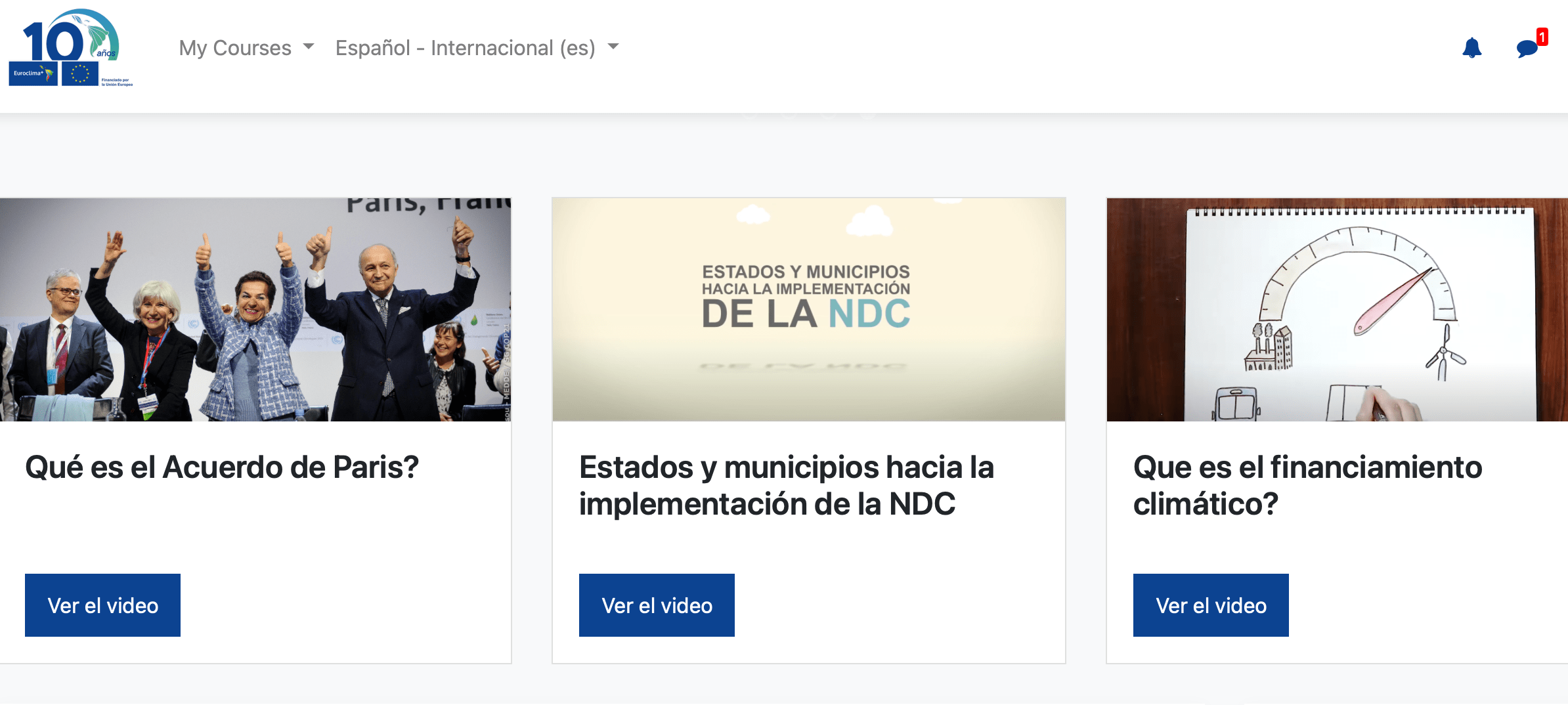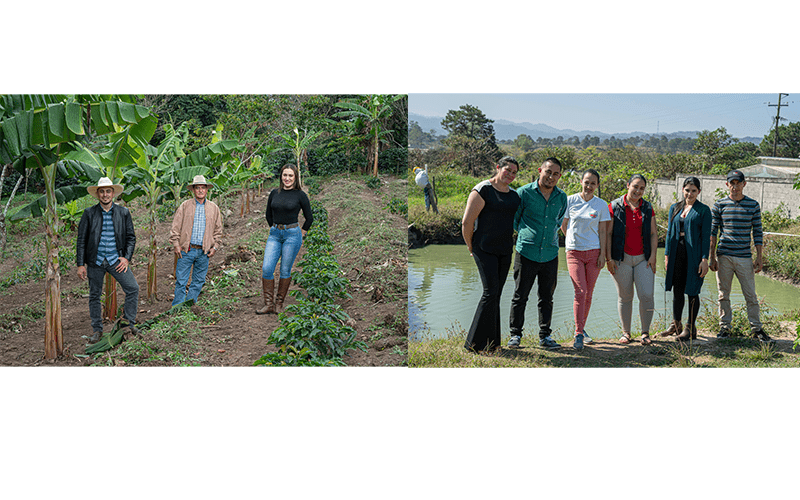700 technicians and officials have increased their knowledge of the Paris Agreement.
Several countries, February 28, 2021- Participants in the course on the implementation of the Paris Agreement framework and the Nationally Determined Contributions (NDCs) of the EUROCLIMA+ programme are carrying out various knowledge multiplication initiatives with a scope of 700 trained people, technical and institutional actors, in 9 countries of Central and South America.
The course, organised by the Resilient Food Production sector, took place in June and July 2020 and was attended by 19 participants (37% women), specialists in communication, training and technical advising for the projects supported by the programme, as well as officials from public institutions. Among its objectives: to train participants to multiply their knowledge and thus contribute to increasing the implementation of NDCs in their respective countries. The student-multiplier has developed training initiatives in 9 of the 10 countries represented in the course.
Building and multiplying knowledge
At the level of the projects of the Resilient Food Production sector, multipliers from the Inter-American Institute for Cooperation on Agriculture (IICA) and the International Potato Centre (CIP) have designed training courses for personnel involved in the Potato, Climate and Family project, covering Peru, Ecuador and Bolivia. In Uruguay, multipliers from the National Commission for Rural Development (CNFR) have trained field technicians and systematisers from the Resilient Family Livestock project team, professionals from CNFR and the National Institute for Agricultural Research (INIA). In Ecuador, ACRA Foundation multipliers updated the training programme for the local team of the Andean Resilience Project in the provinces of Cotopaxi and Cañar, with an emphasis on monitoring and baselines for monitoring adaptation and mitigation actions in the context of the NDCs of the food sovereignty sector.
At the institutional level, Argentina's Ministry of Agriculture, Livestock and Fisheries (MAGyP) has prepared a proposal to support the strengthening of the knowledge of members of the Climate Change Commission and achieve greater participation of its officials. It has also trained technical teams and some decision-makers in the subnational governments. The IICA multiplier in Panama used the knowledge acquired to advise national authorities on the process of revising the ambition of the NDCs, which now include the agricultural sector for the first time. In Bolivia, the German International Cooperation (GIZ) multiplier supported the organisation of workshops and meetings on strengthening governance mechanisms, institutional arrangements, transparency mechanisms and financial mechanisms that have had an impact on the process of updating the country's NDC.
 |
Screen-grab of the course
Other initiatives include the cases of:
- The multiplier from the Ministry of Agrarian Development and Irrigation of Peru, who took advantage of the knowledge acquired to socialise the importance of NDCs for rice cultivation.
- The multipliers of the Netherlands Development Cooperation Service (SNV) developed information campaigns in digital media linked to the press releases produced during the course in Nicaragua and Honduras.
- The ACRA Foundation of Ecuador and the Centre for Research on Sustainable Agricultural Production Systems (CIPAV) of Colombia began the process of analysing the organisation of a course in partnership with local universities, focusing on monitoring and evaluation, communication, and climate finance.
- In addition to the specific work of IICA's trained multipliers, the institution requested support from the EUROCLIMA+ programme to be able to use the course materials in its community of practice on climate change and strengthen the approach to NDCs throughout Latin America and the Caribbean.
Some challenges and solutions found
The trained multipliers consulted also reported on the challenges they have encountered along the way, ranging from logistical ones -finding a space in the agendas of the target group in 2020, having enough time to prepare synchronous virtual trainings-; and institutional ones -getting a response from the authorities. Seeking entry points by raising awareness of the importance of the Paris Agreement and the NDCs for the development of the sector can be effective.
Another challenge is to create specific spaces to understand the importance of NDCs and reduce the gap between national policies and work at the local level. It is necessary to approach the subnational level and civil society and connect the implications of the Paris Agreement with the work. In this regard, technical professionals are working at the production unit level, which on the other hand can help to focus and make the advice of a development agency relevant. In this context, it is necessary to focus on the promotion of best environmental practices, which in turn change the form of production. Their success requires training on these techniques that contribute to the reduction of greenhouse gas emissions and the resilience of rural families.
Conclusions
These initiatives are unequivocal proof of the fulfilment of the objectives of the course to train participants to multiply their knowledge and thus contribute to increasing the implementation of the NDCs with technical assistance at the community level, strengthening climate governance and policies related to the sector, and the integration of the pillars of the Paris Agreement in the communication plans of organisations, institutions, and projects.
About the course
Between June and July 2020, the EUROCLIMA+ programme, through the Expertise France technical assistance in the agri-food sector, trained 19 multipliers (37% women) on the implementation of the Paris Agreement framework and the Nationally Determined Contributions (NDCs).
Among the participants, the largest group represented specialists in communication, training and technical advising for the projects supported by the programme. The others were officials from public institutions. The countries covered were Argentina, Bolivia, Colombia, Ecuador, Guatemala, Honduras, Nicaragua, Panama, Peru, and Uruguay.
More information
Email: This email address is being protected from spambots. You need JavaScript enabled to view it.
